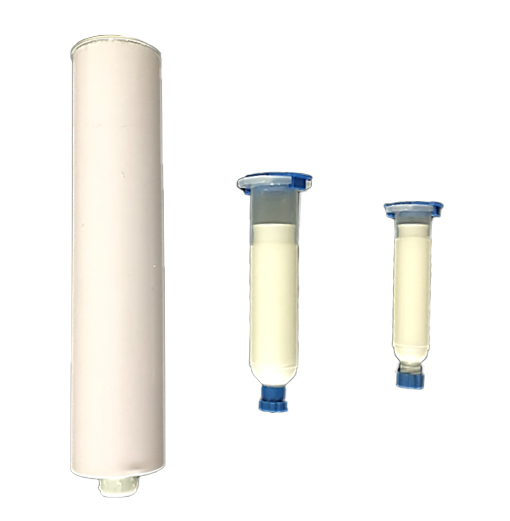Honeywell TA 3000
- Moisture cure
- Good thermal performance
- Adjusts to irregular surfaces
Product Description
Honeywell TA3000 is a one-part moisture cured silicone thermally conductive adhesive, used to bond the heat generating component with heat sink when exposure to moisture in the air. The cured material could function as excellent heat transfer media, fixing of electronic components and sealing protection against contaminants at the same time during application.
Honeywell TA 3000 is a room temperature vulcanization adhesive that forms a curable adhesion layer between two surfaces with a little pressure and meanwhile offer good heat dissipation effect in use across multitude of applications. It exhibits a linear CTE of 102 ppm/°C and 10-20min of tack free time in room temperature.
Honeywell TA 3000 can be used with manual or automatic dispense and cures at room temperature with 10-80% realtive humidity. It is not suggested to use it at highly confined or deep sections spaces and it is typically used for PCBA, LED assemblies, power units and automotive electronics.
Technical Specifications
| General Properties | |
| Color Color The color | White |
| Specific Gravity Specific Gravity Specific gravity (SG) is the ratio of the density of a substance to the density of a reference substance; equivalently, it is the ratio of the mass of a substance to the mass of a reference substance for the same given volume. For liquids, the reference substance is almost always water (1), while for gases, it is air (1.18) at room temperature. Specific gravity is unitless. | 2.8 |
| Physical Properties | |
| Viscosity Viscosity Viscosity is a measurement of a fluid’s resistance to flow. Viscosity is commonly measured in centiPoise (cP). One cP is defined as the viscosity of water and all other viscosities are derived from this base. MPa is another common unit with a 1:1 conversion to cP. A product like honey would have a much higher viscosity -around 10,000 cPs- compared to water. As a result, honey would flow much slower out of a tipped glass than water would. The viscosity of a material can be decreased with an increase in temperature in order to better suit an application | 440,000 mPa.s |
| Thermal Properties | |
| Thermal Conductivity Thermal Conductivity Thermal conductivity describes the ability of a material to conduct heat. It is required by power packages in order to dissipate heat and maintain stable electrical performance. Thermal conductivity units are [W/(m K)] in the SI system and [Btu/(hr ft °F)] in the Imperial system. | 3 W/m.K |




